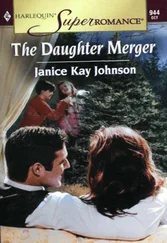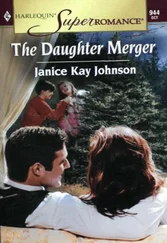“My hired help hasn’t turned up yet. Maybe you’d like to come with me?”
Will’s smile took ten years off him.
“I’d love that, if I won’t be in the way.”
“Not at all. In fact, I think you may actually be a help.” Annie headed for a nearby cupboard. She couldn’t explain why she’d been so impulsive, but the man had roused her curiosity. Handing him a tub of honey and waving goodbye was the last thing she wanted to do.
“I’ll just get my suit and a cardboard box,” she said.
“That’s it? Just the canvas and a cardboard box?” His frown reappeared. “How can you catch a swarm of bees with that?”
Annie smiled. “You’ll see.”
Dear Reader,
There is a scene in The Beekeeper’s Daughter where the heroine, Annie Collins, explains how honeybees learn to identify their hive by memorizing the outside of it, so they can always find their way home.
That’s how firefighter Will Jennings felt when he drove into Ambrosia Apiary. As if he were coming home. Not only was he revisiting a boyhood fantasy about the family of beekeepers who lived and worked there, but he was finding a new life—something he both needed and wanted.
Annie’s return home to help out with the family beekeeping business, on the other hand, was supposed to be temporary—a respite from her old life in the city. Just when coming home is beginning to feel too permanent for Annie, a letter and a stranger arrive at her door on the same day, changing her life forever.
In the end, both Will and Annie learn—just like the honeybees—where home and heart can be found.
Janice Carter
The Beekeeper’s Daughter
Janice Carter
 www.millsandboon.co.uk
www.millsandboon.co.uk
PROLOGUE
CHAPTER ONE
CHAPTER TWO
CHAPTER THREE
CHAPTER FOUR
CHAPTER FIVE
CHAPTER SIX
CHAPTER SEVEN
CHAPTER EIGHT
CHAPTER NINE
CHAPTER TEN
CHAPTER ELEVEN
CHAPTER TWELVE
CHAPTER THIRTEEN
CHAPTER FOURTEEN
CHAPTER FIFTEEN
CHAPTER SIXTEEN
CHAPTER SEVENTEEN
CHAPTER EIGHTEEN
EPILOGUE
WILL CLOSED the door gently behind him. His apartment was dark and stuffy with the closed-up smell of an attic in an old house. He set his duffel bag down and headed straight for the kitchen. If he was lucky, there might be a beer in the fridge.
There was, along with a quart of sour milk and an opened packet of salami that looked like something off a tannery floor. Will took out the beer, popped the tab and shut the fridge. No rush to clean it out. He had all the time in the world. The icy beer sent a jab of pain to the center of his forehead and Will clutched the back of a kitchen chair, overcome by vertigo. He closed his eyes, waiting for the room to settle down before sitting in the chair. Will breathed deeply, forcing air into his lungs. The pounding against his rib cage eased and he loosened his grip on the beer can. The moment had passed. When he finished the beer, he tossed the can into the recycling bin in the far corner and went into the living room.
Not much to get rid of in here. One armchair, one floor lamp, a small television perched awkwardly on a wooden folding table and a portable CD player with a stack of CDs on the floor next to it. He walked over to the window and raised the Venetian blinds, filling the small room with dust—and the first glimmer of daylight since the morning of the accident. Will sneezed.
He took a moment to stare down at the street, shrouded in the same pall of mist that had hung over Newark for the past few days. It was the end of April, though you’d never know it. Will checked his watch, thinking it must be later than the day looked, but it was only three o’clock. Too early for dinner—not that there was anything edible in the place—and probably too early for another drink, though he was tempted.
He withdrew from the window. He’d checked out of the hospital just that morning and had taken a taxi right to Headquarters downtown, where he’d made his resignation from the Newark Fire Department official. The rest of the day was his. And the next and the one after that. At least, until his savings disappeared, which wouldn’t be too long.
He paused in the middle of the room, considering his next move. Funny how unexpected free time was so wonderful when your days were full. Now time had suddenly become a kind of monster—something to be reckoned with, demanding to be filled.
Will’s mouth twisted. It was perverse really. People—doctors, the few friends he could still count on—had warned him about the importance of filling each day. Otherwise the temptation to sit idly inside his apartment would be overwhelming. He would find more and more excuses not to leave. And in spite of his resistance against taking advice, Will knew they were right.
Hence the decision he’d made in the middle of the night, days before he was discharged from the hospital. Forget taking a leave of absence. Forget the physiotherapy and the recommended counseling sessions. He’d known almost as soon as he’d regained consciousness hours after the paramedics whisked him to Emergency that his life would never be the same again.
Frank and Gino were dead and he was alive. Nothing he could ever do would change that cold hard fact. No matter what he did or how hard he tried to convince the rest of his squad that he was every bit the firefighter he’d once been, Will’s gut told him otherwise. Regardless of how many people told him he wasn’t responsible in any way for either death, Will knew there must have been something more he could have done.
He sucked in a deep breath. Not a good idea to relapse your first day out of the hospital, buddy. Stick to the plan. Keep moving. He grabbed the key to his Harley and headed for the door.
ANNIE TOSSED the bundle of mail onto the seat beside her and aimed the pickup away from the mailbox and down the long gravel driveway. She felt a small surge of pride at her skill in maneuvering the truck. Of course, she’d had a year’s practice to finally master the trick. The scratches on the side of the aluminum mailbox were testament to her efforts.
A maroon Buick was parked in the driveway. Shirley was already here. Annie bit down on her lip and parked close to the honey barn, well clear of the car. Shirley had a disconcerting habit of failing to check her rearview mirror when reversing. Annie grabbed the mail and made for the kitchen door. Through the sagging screen she could see her father sitting at the table across from Shirley, who was jotting on a notepad.
“Good timing, Annie,” he said, turning to her as she came in. “Shirley’s just writing down her cousin’s address and phone number for you.” In spite of the heat, her father was wearing his old navy pinstripe suit and a white shirt, unbuttoned at the neck. Annie couldn’t recall the last time she’d seen him in the suit, but guessed it might have been at her college graduation ten years ago. He looked every bit as uncomfortable in it now as he had then.
“You’re early,” Annie said to Shirley. “I hope you wouldn’t have left before I got back.” She hated the reproach in her voice but couldn’t help herself. Her anxiety over the past few weeks was now—on the day her father was leaving for his hip replacement surgery—at its peak. Shirley, her father’s “lady friend,” was driving him to Charlotte where the two would stay with her cousin while he recuperated.
“Of course we wouldn’t have,” Jack Collins said. He shot her an exasperated look edged with apprehension.
Читать дальше

 www.millsandboon.co.uk
www.millsandboon.co.uk










